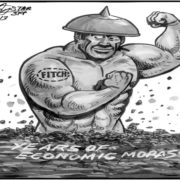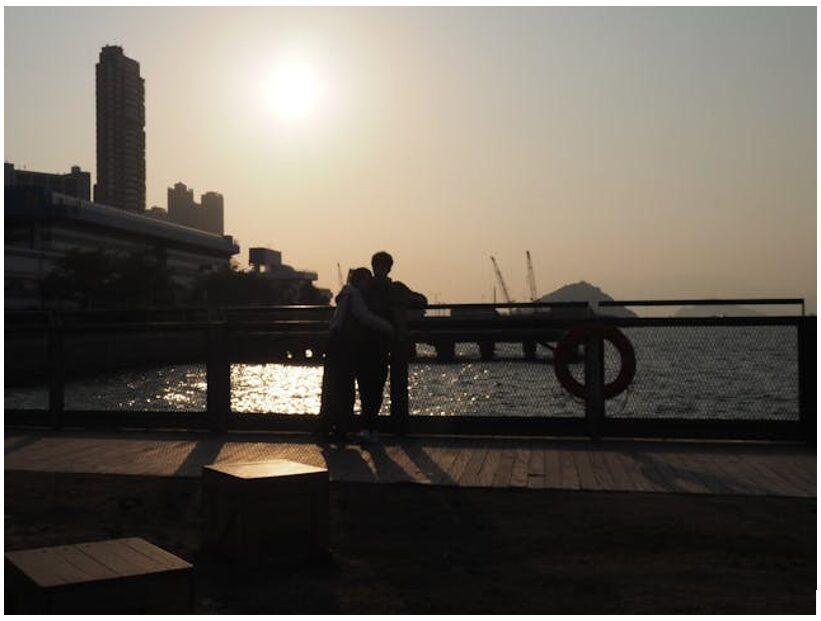AFTER vetoing the proposed Magna Carta for the Poor, Pres. Benigno S. Aquino III faced the ire of The Catholic Bishops of the Conference (CBCP) — including the proponents of the said bill.
Executive Secretary of the CBCP–National Secretariat for Social Action Fr. Edu Gariguez expressed disappointment over the president’s decision.
“If this government will be a hindrance to reforms for the poor, it is really disappointing. You can see the true colors of this government emerging,” Gariguez said in Filipino over Church-run Radio Veritas, adding that the chief executive should have just “sought the amendment of certain questionable provisions,” instead of outrightly vetoing the measure.
One of the main proponents of the bill, Alagad Rep. Rodante Marcoleta said that he was disheartened by Pres. Aquino’s decision, echoing Gariguez sentiments about vetoing only certain provisions, so that Congress would have the opportunity to improve the bill later on instead of needing to come up with an entirely new proposal.
According to Marcoleta, the bill has been pending since the 13th Congress and took two more Congresses before it was sent to the president for signing.
The congressman blames Sen. Francis Pangilinan (who is chairman of the Senate Committee on Social Justice) for the veto, since the House of Representatives (which approved its version of the bill four months prior to the Senate’s approval of its own version) adopted the Senate version of the bill in December of last year.
On the other hand, Sen. Pangilinan, who authored the Senate version of the bill, also lamented the veto. The senator said that there were “consultations” made prior to the chief executive’s veto decision.
“The concern of the executive is that if the resources are not sufficient to fund the law in its entirety, the State may be faced with lawsuits. It was not the intent of the measure to open the State to lawsuits but the executive sees it otherwise,” Pangilinan told Philstar.com.
With 27 percent of Filipinos living in poverty (without access to food and shelter, employment, education and health care), Pangilinan said that if the bill had not been vetoed, the state would be able “to ensure the protection of the basic rights of Filipinos.”
In his defense, Pres. Aquino substantiated his reasons for vetoing the bill, saying that he knows for a fact that “his government cannot meet this demand.”
Referring to the 5 million social housing units of the government, Aquino explained: “If I sign this into law, even if I know that government cannot meet its target, then I only fooled the people who are my real boss. I can never do that to them.”
“Now if we get sued, the problems of government will be compounded even more. We even have to pay their rent in case they have no house yet, not to mention annual interests, and so on and so forth.”
“I would have adopted a delaying tactic, like in the implementing rules and regulations, but I will not. I could have decided to make this pending until the end of my term, and let the next administration inherit the problem. But I will not do it because the next government will be at the losing end, and will be pitiful,” Aquino added further.
The president elaborated on some points which he disagrees with: (1) the phrase “progressive realization” was not included in the covenant, which “could have removed the burden on the part of the government;” (2) two provisions in Section 4 which state that the poor shall enjoy the right to food, employment and livelihood, quality education, shelter, and basic health services and medicines; and that “the government shall, as a matter of duty and obligation, provide the requirements, conditions, and opportunities for the full enjoyment of these rights… which the poor can demand as a matter of right.”
In a separate interview with Philstar.com, the president emphasized that he could not give “false hope” to 95 million Filipinos, describing the measure as “mission impossible.”
“Let’s be merciful to government officials or employees who will be given this mission impossible and end up facing charges for failing to do the impossible. This is why I was forced to veto this law,” the president rationalized, adding that the P3.3 trillion estimate provided him by Budget Secretary Florencio Abad does not even include the 10 percent administrative fees needed for processing.
“In all, it will be P3.3 trillion plus roughly about P300 billion ‘just to administer’ the rights of the impoverished Filipinos, and in order for the program to be fully implemented,” reported Philstar.com.
Earlier, the president disclosed that his administration has to shell out P600 billion for mass housing alone for the 26 percent who live below the poverty line, which equates to about 5 million social housing units for the poor.
He also said that budget allocation is problematic for funding agencies, like the Philippine Charity Sweepstakes Office (PCSO). Under the proposed measure, PCSO is supposed to give 55 percent of all its earnings from lottery operations.
The Department of Agrarian Reform, with its revenues normally derived from sequestered properties, will also be obligated to give its proceeds to the poor.
In response to Marcoleta’s suggestion of vetoing only specific provisions instead of the entire bill, Aquino pointed out that “under the 1987 Constitution, which Congressman Marcoleta should have known, since he is now on his third term in Congress, bills that can only be vetoed by line item are those from appropriation, revenue or tariff bill.”
Meanwhile, Senators Serge Osmeña and Francis Escudero support the President’s decision.
“It is a much bigger sin if we let our countrymen have high hopes on the measure, yet the government fails them,” Escudero said.
Under Presidential Decree 1177, “the President has powers over the budget to decide which items to fund and the only items that are automatically appropriated are debt servicing and the Internal Revenue Allotment under the Local Government Code and the budget for constitutional commissions,” notes Escudero, adding that the executive and legislative branches of the government should work closely in crafting relevant laws, “since about P500-billion worth of laws remain dormant due to lack of government funding.”
According to Osmeña, there is an “unwritten rule” in Congress where lawmakers should ask for a certification of availability of funds from the Department of Budget and Management, before passing a spending bill.
“But Congress keeps at it. The favorite whipping boys are the Philippine Gaming and Amusement Corp. and the Philippine Charity Sweepstakes Office,” Osmeña said.
Pres. Aquino has ordered the Social Cabinet Cluster (Human Development and Poverty Alleviation) to come up with a “substitute measure,” to be submitted to Congress.
From our perspective, it seems that passing such a law at this juncture, (with elections only a few months away) could only point to politicking and scoring brownie points from the voting masses.
And while it is the state’s obligation to fulfill what is constitutionally right for its people, Pres. Aquino chose temerity and tenacity instead — bringing the measure’s flaws to the fore, despite being subjected to scrutiny and criticism, even by his political allies.
Oftentimes, we fall for rhetoric and forget that it is our lawmakers’ responsibility to devise laws and provisions, which they are capable of fulfilling.
(AJPress)







